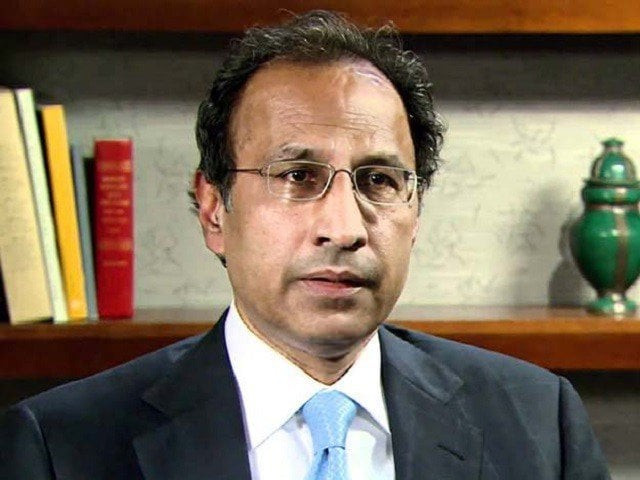The brilliant Dr Shaikh
The challenge for Dr Shaikh would be not only to bring the IMF team to Pakistan but to conclude a deal with the Fund

Adviser to the prime minister on finance Dr Abdul Hafeez Shaikh. PHOTO: EXPRESS
It must have been a bitter pill for the PTI to swallow. But if the resignation is anything to go by, keeping aside all what the party’s supporters say, we can safely assume that in the eight months the PTI has been in power, the economy has gone from bad to worse.
Recent inflation numbers as well as the rupee-dollar parity are quite telling. One cannot keep blaming everything on the previous government. To begin any move to set things right, the first step would be to acknowledge one’s mistakes. Between August 2018 and today, many mistakes have been made. The initial dollar-rupee adjustments, says a money trader I talked to, was more because of the confusion caused by the finance minister and his team than the on-ground situation.
In July 2018 ahead of joining the Cabinet, Asad Umar said Pakistan had “no option but to go to the IMF”. In September 2018, after taking over, he changed his line and insisted that Pakistan wasn’t going to the IMF “any time soon.” In January 2019, as he unveiled his mini-budget, Asad Umar insisted there was no panic in Pakistan over a bailout package from the IMF and the country “would neither go down on its knees and surrender before anybody nor would it take dictation for economic support.” But in April 2019, he announced that Pakistan and the IMF would soon sign a package for bailing out the country’s ailing economy. A couple of days after this statement, he rode off into the sunset. Where does that leave us?
Now we have Dr Abdul Hafeez Shaikh. Unlike Asad Umar who left his previous job under a cloud, Dr Shaikh has time and again proved his worth – first with General Musharraf and then with president Zardari. And yet he too was asked to leave in 2013.
The takeaway here is that people are removed even when they have proved themselves.
It was reported that president Zardari removed Shaikh as the country’s finance minister after differences on important posts and key policy issues. The first rift appeared over the nominee for the post of chairman Securities and Exchange Commission of Pakistan. The finance minister moved the summary thrice to then PM Yousaf Raza Gilani but it was not approved. The second point of contention was the appointment of the chairman of the Federal Board of Revenue, Ali Arshad Hakeem.
When Shaikh confirmed his resignation to the press, he insisted that since he had been nominated for the slot of the caretaker prime minister, he deemed it unfit to be part of the incumbent government anymore.
One is hopeful that this time round, the brilliant Dr Shaikh has come with all the assurances he needs to mend the economy. So far, the news is that the burdened will be given more to bear.
Pakistan is ready to make additional tax efforts equal to 1.7% of the total size of the national economy in the next fiscal year. Shaikh has moved swiftly to present a Budget Strategy Paper in the federal cabinet by April 30 in addition to ensuring that the IMF staff level visit remains on track.
But to hit the goal of tax efforts equal to 1.7% of Gross Domestic Product (GDP), the government may have to slap over Rs600 billion worth of additional taxes that will be equal to 1.4% of GDP. The remaining 0.3% of GDP will be achieved through administrative and enforcement measures. These numbers will be subjected to scrutiny of the IMF Mission, which arrives as scheduled by the end of April. The additional tax efforts are aimed at compensating some of the losses due to poor performance in this fiscal year and protecting defence spending while ensuring primary budget deficit at the same time.
The challenge for Dr Shaikh would be not only to bring the IMF team to Pakistan but to conclude a deal with the Fund soon after. Pakistan desperately needs the IMF’s seal of approval. That possibly explains the appointment of Dr Shaikh in the first place, who has a track record of delivering and for his excellent connections in circles that matter.
Published in The Express Tribune, April 22nd, 2019.
Like Opinion & Editorial on Facebook, follow @ETOpEd on Twitter to receive all updates on all our daily pieces.
















COMMENTS
Comments are moderated and generally will be posted if they are on-topic and not abusive.
For more information, please see our Comments FAQ